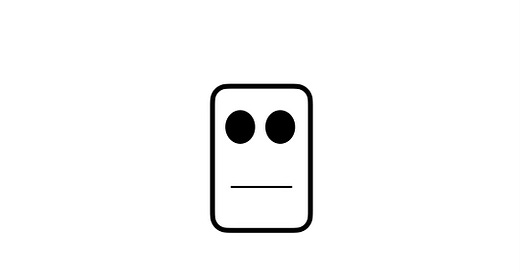The First And Last AI Device?
The celebrated designer of Apple’s most famous and successful products plans to give us an AI device, whether we want it or not.
Last month, Sir Jony Ive’s design start-up io was acquired by Sam Altman’s OpenAI for $6.5 billion. They revealed that they’d “quietly” begun collaborating two years ago and that their explorations had evolved into “tangible designs.”
What their AI device will look like is anybody’s guess, and there’s a lot of guessing going on.
One expert thinks it’ll “share a likeness with the iPod Shuffle” but won’t be a pair of glasses. It won’t have a screen and might sit on a desk. There may be a “family” of such devices.
What’s clear is what Altman and Ive expect it to be “fully aware of a user’s life and surroundings” and they expect their device to ship “faster than any company has ever shipped 100 million of something new before.”
What it will actually do to us and our world is where things get even sketchier and, well, somewhat full of shit.
The glossy partnership propaganda was followed by a PR media tour, resulting in things like a full-page puff piece in the Financial Times headlined “Many of us have an uneasy relationship with technology.”
The story featured Ive and Laurene Powell Jobs (Steve Jobs’ widow) waxing poetic about their awareness and deep sense of responsibility for the unintended negative consequences of technological innovation, combined with their optimism that they have the insight and ability to overcome them this time.
Powell Jobs explains that AI will transform everything but that it’s “unclear what direction the world is headed.”
Ive says that all he can do is “try to be useful.”
There’s so much wrong with this, starting with the premise that really smart and even well-intentioned people can foresee and preclude really dumb outcomes from their efforts.
Different isn’t inherently better, and major tech innovations tend to deliver variations of the good and bad stuff they blow up. History is clear on this point: We won’t know what we’re getting (or if we even want it) from a tech revolution until it’s too late to stop or change it.
Yet Ive, Powell Jobs, Altman, and the other tech titans are running headlong toward realizing that outcome as if somehow it’ll be different.
The other major issue with this news is the reiteration of the “fully aware” nature of the interaction with AI that they envision for us.
Promises of privacy and opt-out aside, what they’re developing is a machine that sits between people and the world and thereby acts as a filter for their every thought and experience.
Your AI device will find information for you. Advise you in your conversations. Guide your planning. Do things for you, whether large or small, and do them at your command or autonomously on your behalf.
It will know you better than anybody else, and it will be your window to the world and its window to you. It won’t be an AI device as much as an everything device.
And the two of you will be as inseparable as the changes to your life are irreversible.
Ive and Altman are thrilled at this prospect, noting that the tangible designs for their AI device remind them “of a time when we celebrated human achievement, grateful for new tools that helped us learn, explore and create.”
That’s great that they’re so excited and, judging from Ive’s pedigree alone, the device they give us may be irresistible.
I’m scared.




